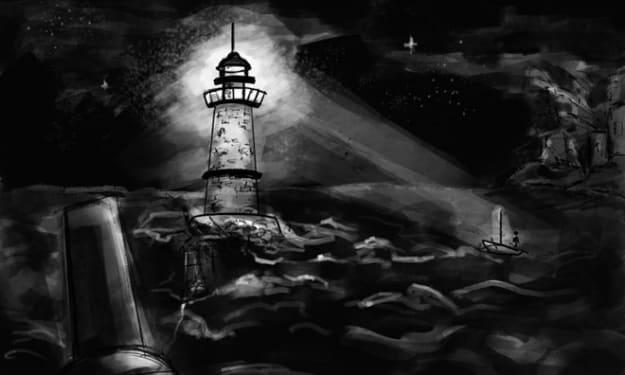History and Theory will be published in the 3rd issue of 2021.
Reading workshop western historiography theory reading workshop.

Editor's note.
History and Theory (History and Theory) magazine No. 3 (Volume 60, Issue 3) in 2021 has been published recently.
This issue includes the research project "iterations: the Historical Future" (Iterations: Historical Futures); lectures on History and Theory (History and Theory Lecture); papers (Articles); and Forum: what is the History of Post-colonization?
Perspective of India through Mexico (Forum: What Is a Postcolonized History?
Seeing India through Mexico); comment article (Review Essays) consists of five parts.
.
This "iteration" series includes the paper "entanglement" (Homo complexus: The "Historical Future" of Complicity) by Nitzan Lebovic, an expert on Nazism and Holocaust history.
Nizan believes that in the current Anthropocene, how to reshape their sense of time is an urgent task, and the characteristic of "collusion" is an important mechanism for us to understand the politics-temporality of the current era.
The so-called "collusion" means that an individual or community shows a presentism preference for immediate interests, which is not devoted to the facts of the past, criticism of the present and judgment of the future, or any kind of long-term consideration.
This strategy has appeared since the early days of human birth, and has been used as a potential force to form a power entanglement with the external political space.
In the Anthropocene era, the meaning of collusion is further expanded by the author. As a boundary concept, it marks the relationship between the past history and the future history, in which the past history is humanist and anthropomorphic, while the future history transcends human time.
The author emphasizes that perhaps the entangled human world is giving birth to a Kozelek-like "saddle period". While we perceive the change of time scale, we need to examine the strategy of "collusion", urge ourselves to reflect from the dual perspectives of "experience space" and "horizon of expectation", and expand the reflection beyond them.
More importantly, we need to consider the impact of the "collusion" mechanism at the center of the human model on the future of the Anthropocene and fight for its transformation from a negative boundary concept to a positive one.
.
The lecture on history and theory is a standing column in the journal History and Theory.
Magazines usually invite internationally renowned scholars such as Ginzberg, Chakrabarti and Martin to talk about the latest research results in their respective fields.
The start-up of this column dates back to (Carlo Ginzburg, "The Letter Kills: On Some Implications of 2 Corinthians 3:6," History and Theory 49, no. 1 (2010), 71-89.). As of today, a total of eight issues have been released. Readers who are interested can check it out on the official website of History and Theory.
The speaker of this issue is Francois Ahtogo (Fran?ois Hartog), a famous historian and historian of the French Almanac School. His theme is "time, moment, decision: the Origin of Western time" (Chronos, Kairos, Krisis: The Genesis of Western Time).
Taking three words expressing the concept of time in ancient Greek: Chronos, Kairos and Krisis as the core clues, Ahtogo combs the dynamic changes of the cognition of inner time consciousness in the western world from ancient Greece, the Christian era to the present human world.
After the article, six scholars responded to Ahtogo's research from different perspectives.
Due to the outbreak of the COVID-19 epidemic, the lecture scheduled for March 2020 was shelved, and the speech and related discussions were not actually carried out in reality.
Ahtogo slightly regrets the final presentation of the manuscript, pointing out that readers who want to learn more about the ideas in the article can read his new book on the same subject, Cronus: the relationship between the West and time (Chronos: the West's Engagement with Time), where readers' questions may be effectively answered.
.
The issues discussed in the two papers have their own emphasis.
Daniel Woolf (Daniel Woolf) tries to introduce the concept of Normativity into history. He firmly believes that by making standardization an important factor in historical thought, it is helpful to understand our attitude towards the change of historical phenomena.
At the same time, when combing the different modes of standardization, Woolf is also vaguely worried that the sense of fracture in modern and post-modern times will make us lose our normal judgment of normative standards.
George Gunr (Georg Gangl) tries to explain that although historical cognition is often trapped in the inextricable tension between the present and the past, presuppositions such as the irreversible passing of history and the untimely exploration of historiography can not ultimately affect the scientific result of historiography.
By regarding historical knowledge as information and adopting the corresponding methods of coherence and explanatory description, history as a scientific proposition about past knowledge can be realized.
.
The three articles in the forum reflect the application of post-colonial theory in specific historical practice.
Several scholars take the research starting point from the perspectives of literariness, regionality and past research.
About the Creator
Enjoyed the story? Support the Creator.
Subscribe for free to receive all their stories in your feed. You could also pledge your support or give them a one-off tip, letting them know you appreciate their work.





Comments
There are no comments for this story
Be the first to respond and start the conversation.